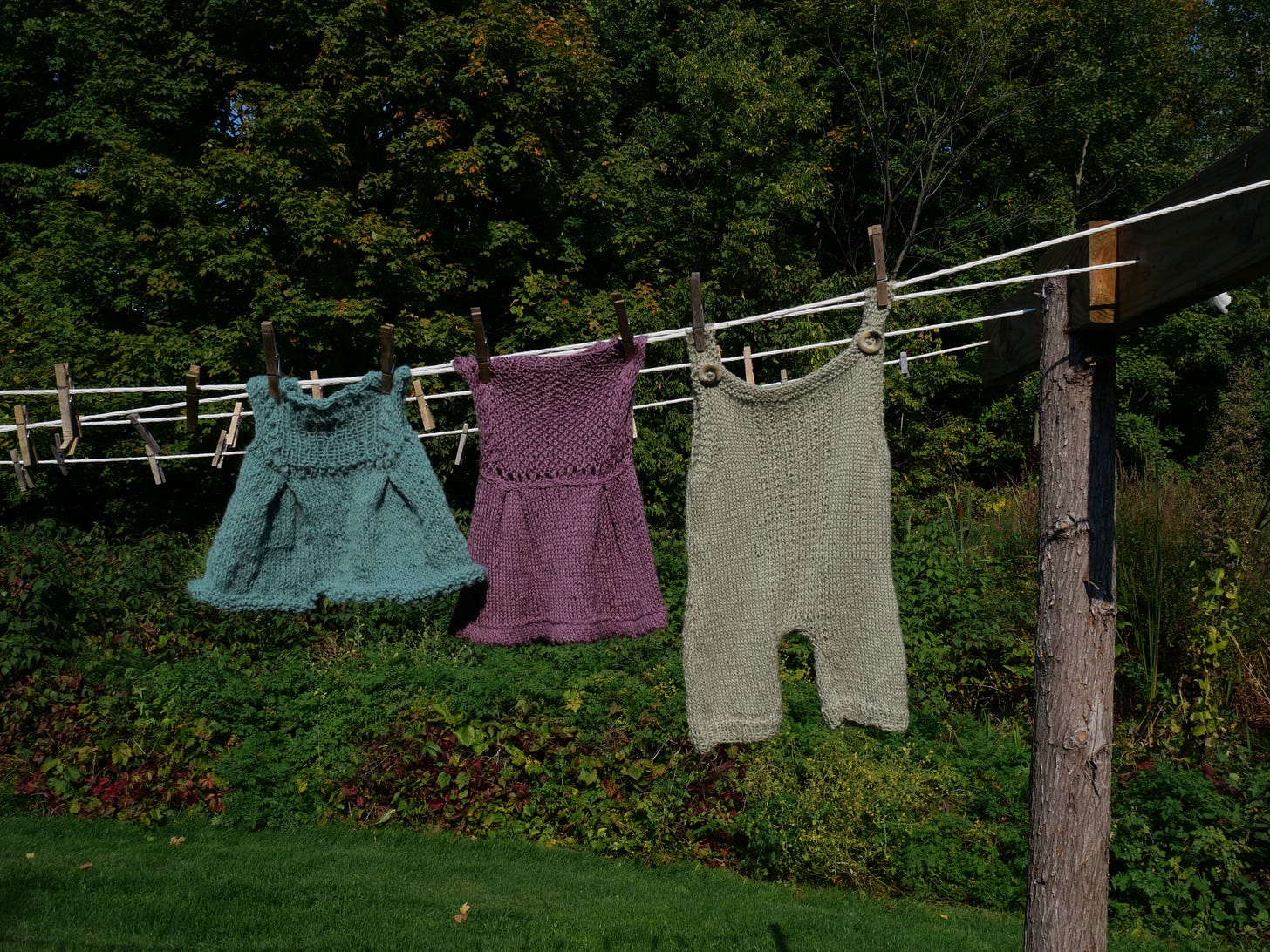Manners and Morals: 001
Traditional Etiquette in the 21st Century — Where Should Women Sleep When Traveling With Male Friends, And Other Such Concerns
This is the start of a new series about something quite old. Some people might say it’s out of style — but being polite will always be fashionable.
Judith Martin aka “Miss Manners” is something of an authority on etiquette, and has written extensively on the issue. She is Jewish, and from what I can tell, doesn’t really care about one’s personal morals when done in secret. She is a proselytizer, but of actions, not of souls. I would argue that what she does is good nevertheless — she proves that while God might only care about what’s in your heart, that’s not going to get you very far with your fellow man if you’re outwardly intolerable. And so she does her best to instruct people on how to make themselves visibly tolerable through good works alone. And for the individual who applies her advice alongside their own expression of faith, this is almost enough. Being well-mannered will make you quite fashionable among your friends!
However, it’s not quite enough to just be “fashionable” if you can’t tell your friends what brand it is you’re wearing when they want to become fashionable, too! They will ask you, “Well, how is it you’re so always so pleasant to be around? How can I be like you?”
They won’t be inspired if you say, “Well, I’m not actually all that good — I just put on a mannerly presence when I’m around you — at home I’m quite another person!”
If you say, “It’s not really me. Yes, I read a manner column, and that helps. But also God gives me the strength so that it’s not just an act . . .” you might find the “fashion of etiquette” spreading in a more legitimate way.
This series is about how to deal with issues in a way that’s both mannerly and morally. My introductory piece here below is meant to set the tone — after that it is up to you, the reader, to determine the shape this series takes. You are free to personal message or email me at keturahskorner(at)gmail(dot)com and I will share your questions anonymously with answers.

There’s a lot of old timers out there that like to say you can’t fake good manners. Unfortunately—providentially?—they are unaware of how their favorite young people manipulate them. Not to say that all politeness among the conservative youth is fraudulent. It’s not. But it doesn’t take long to realize that if you want to climb high on the totem pole in your bubble, you’ve gotta know the sacred rules.
“Trad larpers” on twitter are hilarious to behold. They put on frilly aprons, sprinkle themselves with flour, and purport to talk the walk by pretending to be racist, unruly, and churlish. “Normies” are disgusted, and rightly so. But when an authentic traditional person — meaning one who was raised in a conservative Christian home as opposed to a liberal household — stumbles online and witnesses the spectacle they are astonished.
This is the story of my coming on twitter and being confronted by a fad that was cosplaying my life. I was raised too sly for all that stuff.
The rules are subtle, and only noticeable if you know them. It’s a game hard to play unless you know the prize you're after, and online larpers fail to realize any of this in their brash display. Online larpers simply aren’t going to make it. They may cover themselves in all the world’s ruffles and lace, but they haven’t learned the power of exquisite speech and how to be appropriately peculiar so as to be appealing.
The authentic traditional person has something other than morals. They have manners that blur gently with etiquette.
In my element, I am charismatic. But everything has its proper place—in order to reap its proper reward. Yes, there is a natural ditzy naivety to my person due to being cultivated into something sweet enough to submit to a man. I am aware of that, however, and have learned to use my wiles to my advantage. I am not rude (although sometimes pointedly terse and blunt). I do not notice differences in others be it their skin color, state of clothes, or disgraceful bodily noises and mannerisms. I have nothing to prove, except grace. Politics only matter if they are civic. Yes, I am traditional, but I don’t think in such vulgar metrics such as “virgin”, “hoe”, or “patriarchy”.
Manners aren’t morality. Morality demands that everything be crystal clear. If the Nazis ask if there are Jews under the table, and there are, you must say, “No, they are under the rug.” Manners concede that sometimes white lies are acceptable. If you know someone is about to ask you an unpleasant question, interrogate them first, as Jesus did, or answer with a parable or another question.
Manners have one purpose: to show a pleasant appearance. Those who properly employ manners, especially those raised in the art from their youth know that this pleasant appearance affords them many unique opportunities. Because of this distinction, it is impossible for the mannerly person to be a hypocrite unless they concede that they believe themselves morally superior. The mannerly person is too humble for self-righteous vanities.
The manners of the conservative—not to imply the political conservatives, but the religious sort who don’t pursue careers—are almost always opposite to those of the secular. We don’t text before we drop in. We may or may not use titles when addressing our elders (if we do, we’re probably trying to get something). We certainly don’t take off our shoes when we enter a house, unless wearing Muck boots. But we’re always barefoot when shopping, or in a gas station, and if a clerk complains, we ask — not as Karen does — to see the manager. We’re peaceable, unless provoked, and then we release the power of pacifism (aggressively).


Judith Martin has expounded on the necessity of manners for over forty years. Not so much because she wanted to see more people extending their pinky finger while drinking tea, though. She talks about her reasoning in her introduction to a compilation of her advice titled “Miss Manners’ Guide to Excruciatingly Correct Behavior”. She theorizes on how once the concept of Sunday Best was understood to be a good break from the Ordinary Everyday. You wore your best clothes, went to church, returned home for a good meal, and sat quietly, stiffly, and serenely. Nothing was unattractive though it came to be thought of as boring. And yet people need to have two modes of living, and they will have those two modes. If they don’t have the Best to balance the Ordinary Everyday, they will institute (as the secular world has) the Worst. The fine china still remains in most homes, but is never used because people would rather have their paper plates. Boring, unimaginative rituals are replaced with dreariness.
She writes:
Regular change is refreshing as well as exciting. If given the choice, she would prefer one to be Ordinary and the other Best, rather than one Ordinary and the other Worst.
Those who are steeped in a traditional culture never bother with the etiquette of drinking tea and balancing books on heads. But they understand what it means to put on attractive, if it is modest, clothes. Perhaps frugality demands it be thrifted, but the dishes in the cupboards are carefully selected to be tasteful. Even if they had enough money for whitewashed homes, they wouldn’t have them. They want a little clutter to make the regular guest feel cozy. It does not matter if the silverware is real, plated suffices, but there must be pretty, floral designs. Anything that is ugly is disallowed and thrown to the landfills: clothes with words and pictures, Halloween and Hollywood themed merchandise, obnoxious shower curtains, and wrongly shaped mugs. It’s mostly best to not give gifts to the traditional person unless you, too, are of their ilk — they will say thank-you, but the traditional person feels no guilt at later throwing the gift away if it doesn’t suit their lifestyle. They are better gift-givers anyway, so let them give to you.
When the young person starts traveling, their manners are put to the test. Those who have not learned the benefit of having manners, may be stupid enough to discard all signs of their upbringing and put on name-brand clothes and look to their peers for guidance. They will try out swear words and claim to have uncouth beliefs that they never before thought of having, and maybe reach for an unsavory book to read. Maybe they will not avert their eyes when a kissing scene occurs in a film.
The mannerly person will cautiously cling to their odd appearance. They will not make their peers feel uncomfortable, but accept any mocking directed toward them.
If possible, the traditional youth will only sit by those of the opposite gender during the day time. At night, the young woman will be offered the most private (mind you, not necessarily the most comfortable) place to sleep. The men will assume to sleep in the more public spaces. The traditional woman will not be seen in her pajamas in mixed company. She has a stand-offish reputation of mystery to protect.
In all ways, the man is the gentleman, and does not ask for the woman to match him in contests of merit be it in drink or sport, exempting conversation. If she happens to win one too many times in a board game or sport, she will have the grace to quietly lose, because her ego is not as fragile, as Helen Andelin recommends “The Fascinating Girl”. The mannerly woman may win at a game of wits with anyone she meets, except with the elderly. If the man is not mannerly, he may try to throw some innuendos her way. In this she must become outraged, if there is no man to defend her.
There are many instances in which a mannered woman must become outraged. While it is never polite to be sarcastic, and it is rarely permissible to be sassy, she is not expected to be sweet at all times in order to be perfectly mannered. If something transpires to offend, and if it is no trifle, it can’t be allowed to let slide. Hopefully there is a mannerly man to do something about it. But there are fewer men able or willing than there are women in these circles, therefore it is left to the woman to take a vigorous stand to defend a wholesome appearance of beauty in all things. If it is slight, she may let it slide as long as it doesn’t affect the reputation of her dignity. Politeness in these situations is still of the utmost importance. It takes much calm and cunning to put down unacceptable behavior without it becoming a cat-fight, which the mannerly woman must never find herself in. The mannerly woman — or man — must never demand an apology, for the mannerly person never feels entitled to anything1. They wish only to see beauty flourish.
I have already mentioned that the mannered youth must never spar words with an elderly person. I now expound on this to offer exceptions. In many ways, one’s interactions with an elderly person highlights their true talent. If you are well loved by the majority of the older people in your life, you are indeed skilled. Unfortunately, only women have the privilege to reach this level. A man simply won’t be taken seriously most of the time if he leans forward eagerly, tilts his head just so, or sets his eyes aglow with interest. Once a person reaches middle-age, a woman can use her manners to attain just about anything she wishes simply by offering that person what they want: respect. It is an easy matter if she doesn’t want them to know something about herself. She only needs to ask them a multitude of questions about themselves. If she wants them to think something about herself that is mostly but not entirely true, she will offer little snippets of scenes painted in such a way so as to suggest something that might be so. With careful body gestures, exacting words, and endless smiling, she can receive any information or permission she seeks; even create obscurity for herself if that is all she desires which she does by speaking a good deal excitedly about superfluous matters therefore painting a picture of an open, blank book. Occasionally, she can have some fun by sweetly saying something she knows the other person would find unpleasant by framing it in such a way as to almost agree with them. This is not gaslighting, although the untrained eye might think so. This is allowing oneself to retain their dignity in a time when they must forfeit freedom of speech.
Manners for the conservative are a clever rendering of the golden rule. But where you might “do unto others as you’d have them do unto you” you learn to “do unto others to have them do as unto you as you determine”. It is the oldest “Choose Your Own Adventure”.
Do you have a pressing concern or curiosity? Whether it’s an interpersonal drama, a simple matter of how to express politeness when in a specific setting, or an interest in how a traditional person might act in a particular circumstance, I’ll do my best to provide an entertaining and enlightening perspective. Please send any questions you have to keturahskorner(at)gmail(dot)com.
Your information will remain confidential, and if your question is chosen to be answered, it will be shared anonymously.
I hope you found value in this advice. My essays are free to the public, however if you’d like to buy me a coffee (or tea) you may do so by donating here:
I discuss this in part in my essay How to Keep Your Friends. I may expand on this issue at some point in the veins of this tweet:








This was fantastic.
I have always been a student of culture and manners.
Those with good manners get accepted
Those with bad manners are rejected
-
I always stand up when a woman or important man enters a room.
I always offer refreshments to visitors.
I don't discuss politics, sex or religion with people unless I know them very very well.
The above are pretty normal for New Zealand.
We are a good manners country.
No shoes inside.. as it's a rural land.
Even when I was homeless, I had good manners and it helped a lot.
Thanks for writing that!
I love this language of “mannerly” and “mannered” and the deep relationship between politeness and morality. As a youngster, I thought politeness was phony, but now I'm wondering if I thought that because I was conflating politeness with political correctness. Political correctness serves to totally avoid conflict and flatten difference, which kills the possibility of deeper relationships. True politeness or "mannerliness" serves to resolve conflict and mediate difference in a way that enables relationships.